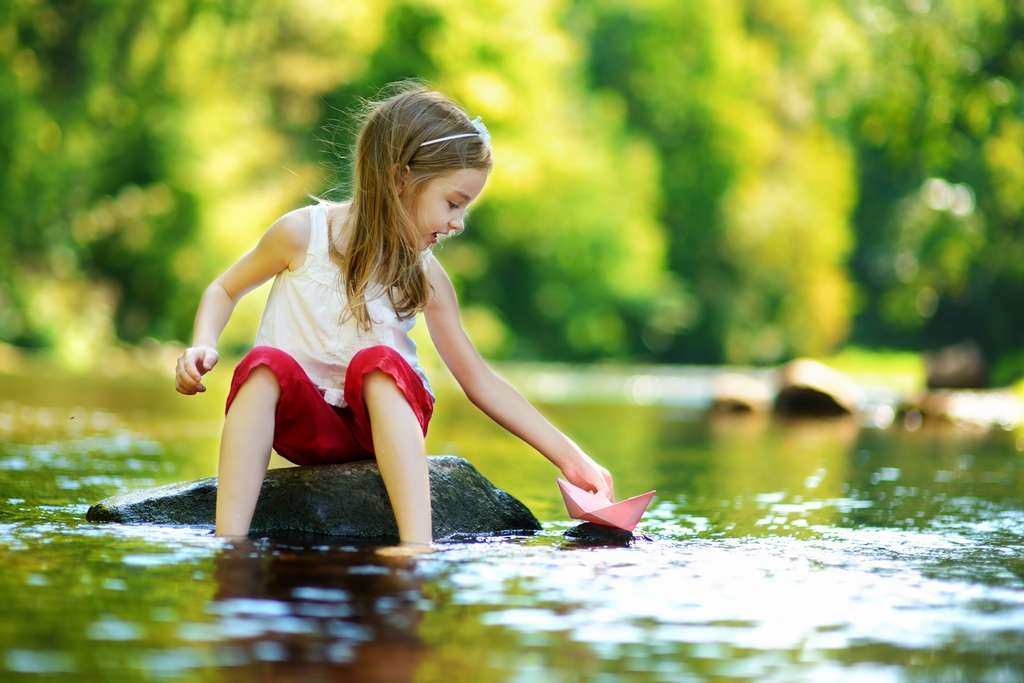Children in Blue Spaces


A massive new study shows a strong connection between childhood experiences with water and nature and wellbeing as an adult; yet, more and more people are turning away from “blue spaces” despite the profound benefits. Why?
By Eric Herman
While time spent in nature has long been associated with multiple physical health benefits, more recent studies have linked nature experiences with better mental wellbeing. Yet, in generational terms, more and more people are turning away from nature, or at least not making time in blue and green spaces a priority.
In a new study recently published in the Journal of Environmental Psychology, research indicates a connection between childhood exposure to natural “blue spaces” and adult “subjective wellbeing.”
Using multiple surveys and sources, the well-referenced study, titled “Mechanisms underlying childhood exposure to blue spaces and adult subjective well-being: An 18-country analysis” examines the premise that time spent by oceans, lakes, rivers and streams as a child results in more time spent in the environments as an adult, and therefore supports the long-term benefits of experiences in nature.
Unfortunately, the same analysis reveals a trend away from natural experiences for growing numbers of people. Researchers explain: “Despite growing body of evidence linking nature experiences to positive mental health outcomes, including greater subjective well-being (i.e., how people think and feel about their own lives), people are becoming increasingly detached from the natural world.”
According to the authors: “In a representative study of over 16,000 people in England that do not visit natural environments regularly, 22% of respondents reported that they were ‘not interested’, felt that nature was ‘not for people like them’, or reported ‘no particular reason’ for not visiting nature. Such lack of interest, feelings of alienation, and apathy may, in part, be due to competing demands of other daily activities and to the growth of other forms of entertainment, particularly electronic technology.”
Further research indicates that less time spent in childhood further exacerbates disconnection from nature later in life.
Valeria Vitale, lead researcher on the study, recently told PsyPost.org, “Overall results showed that people who reported more blue space experiences in childhood also tended to report greater subjective well-being now, when they are adults. This, in turn, led to better subjective well-being.
“Findings of our study highlighted the relevance of spending time in blue spaces during childhood, that not only has many positive effects in the short-time as shown by previous literature, but provides benefits in the long term as well, in terms of improved well-being”
“In short,” she added, “our research specifically demonstrated that greater contact with blue spaces during childhood may support better mental health in later life by enhancing intrinsic motivations and consequently the frequency of nature-based recreational activities in adulthood.”
Although the authors note that there is much yet to be studied about the relationship between childhood experiences in nature and the lasting positive impact into adulthood, the results in this sweeping study indicate the journey into blue spaces begins as a child.
Photo by MN Studio | Shutterstock









